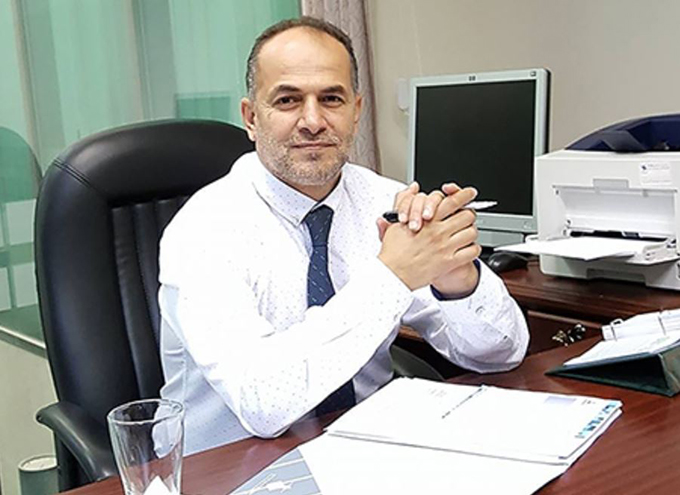
Pacific Media Centre Newsdesk
In the middle of the convicted mosque attack terrorist’s sentencing in New Zealand’s High Court at Christchurch last week was language interpreter Dr Mustafa Derbashi helping survivors and families tell their stories.
His task was trying to help people to understand and to be understood.
“It was an honour … to be [offered] this role. It was a huge responsibility,” the Auckland University of Technology graduate said.
“It was an honour to get the letter … to be [offered] this role. It was a huge responsibility,” the Auckland University of Technology graduate said.
The sentence hearing lasted four days, starting on Monday, August 24, and was conducted under heightened security.
A large number of victims and their families attended with 98 people giving impact statements, with those who could not be in the room due to covid-19 restrictions watching a restricted livestream in additional courtrooms or overseas.
The terrorist, Brenton Tarrant, who represented himself after he pleaded guilty to murdering 51 people, attempted murder of 40 people, and engaging in a terrorist act, was sentenced to life in prison without the possibility of ever leaving jail – the harshest sentence ever handed down by a New Zealand court.
Police and health settings
Dr Derbashi completed a Graduate Certificate in Arts (Interpreting) at the Auckland University of Technology in 2018, opening the opportunity for him to be a qualified interpreter in courts and tribunals, with the police and in health settings.
“I’ve worked in courts over the past few years and I’ve seen difficult situations … you need to be of your full consciousness,” he says.
Last week’s hearing was unprecedented and interpreting for it was a difficult challenge.
It was unpredictable, he said, as the victims and the relatives or anyone who represented them could be part of heightened emotions at the court, he said before the hearing.
“I am very humbled to be able to serve the country in this way. I would like to give special thanks to my legal and health interpreting lecturers, Jo Anna Burn and Ineke Crezee, both subject experts and excellent teachers.”
Interpreters do not just put together words in different languages, Dr Derbashi said. They need to be trusted and to have an ethical commitment which includes confidentiality, but also to convey the message as it is, without any omission or addition.
Court interpreting also has its own challenges.
Flexibility, impartiality needed
“You need to have not just a flexibility, but to be really impartial and ready to face any situation, particularly emotionally, psychologically and when you are talking about legal terms,” he said.
“Even if somebody swears, you need to go there.”
For example, a defence lawyer in a case might use vivid language to ask a victim whether sexual harassment and rape really happened.
If the interpreter could not interpret the question properly, then there could be a miscarriage of justice with an offender getting away with a crime.
Dr Derbashi also interpreted at the Dunedin vigil for the victims of the Christchurch mosque attacks.
“That was the first huge event I did. I was chosen by the Dunedin City Council at that time… and all the feedback that came afterwards was really amazing,” he said.
“For three hours I interpreted for more than 22 speakers, without knowing anything in advance about their speeches. It was a great honour, and a great challenge as well.”
This article is republished by the Pacific Media Centre from AUT News.












































